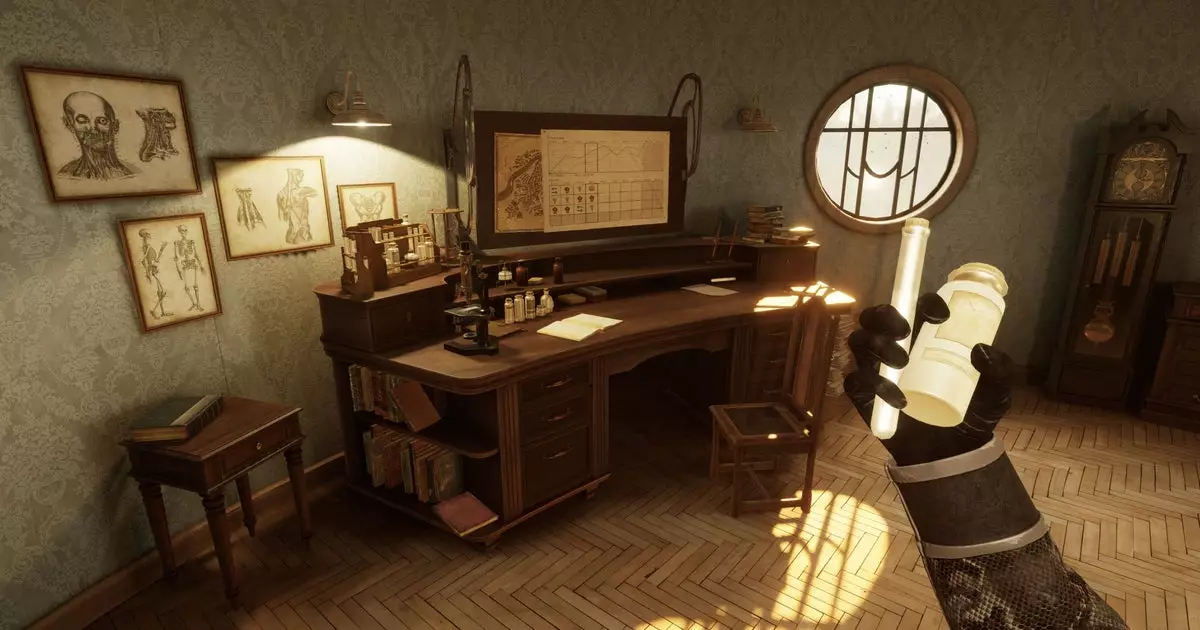This morning, as I sifted through my digital correspondence, a grisly metaphor presented itself in the form of an unexpected announcement. The developers at Ice Pick Lodge are apparently resurrecting their notorious infection simulator, Pathologic, for a third iteration. However, this time, they promise to delve deeper into the entwined themes of time and consequence, introducing a time-travel mechanic that will allow players to revisit pivotal moments. In the framework of this sequel, players will explore how their choices lead to varied outcomes for the townsfolk, making decisions that will ripple through the fabric of the narrative.
The tantalizing premise presents a more robust form of gameplay, where players will don the role of the Bachelor – a medic steeped in oratory flourishes of Latin. His role extends beyond merely battling the epidemic rife within the town; he will wield authority over quarantining efforts and police patrols to restore order. The narration and mechanics suggest an intriguing blend of time management and moral decision-making, challenging players to grapple with the ethical implications of their choices while trying to save the town from its malevolent fate.
Unlike its predecessor, Pathologic 2, which focused on the Haruspex, the Bachelor’s perspective introduces a fresh approach to understanding the painstaking realities of the plague-stricken environment. The ability for players to utilize lab equipment and microscopes to research diseases fosters a sense of intimacy with the hardships that the game’s residents endure. It begs the question: as a player, not only will you be fighting against the encroaching dread of the town’s demise, but you will also need to navigate your way through the moral labyrinth that accompanies every quarantine order and patrol request.
The developers state that the time-travel mechanics will not veer into the realms of fantasy but instead provide a Rashomon-like perspective, where players can glean the ‘true’ nature of events as they unfold. This design choice enhances the narrative complexity and allows for deeper engagement with the game’s challenging moral landscapes. It is a chance to consider, reflect, and potentially rectify previous blunders within a limited timeframe, as players are still bound by the 12-day constraint that has defined the series.
The distinction between Pathologic 2 as a remake and Pathologic 3 as a full-fledged sequel is essential for understanding the series’ trajectory. Initially, fans of the original game could experience the world through three protagonists. The shift to make the Haruspex as the default character in Pathologic 2 raised eyebrows, but now with the introduction of the Bachelor, it appears that Ice Pick Lodge may be pivoting back to a more familiar narrative structure.
However, this decision comes with lingering uncertainties. Will players need to invest in future iterations, such as a hypothetical Pathologic 4, to uncover the narratives of the remaining protagonists? Such questions echo throughout fan forums, spurring debates about the franchise’s future. The trajectory of the series seems to be a double-edged sword – reviving beloved characters while simultaneously imposing financial commitments on a player base eager to relive their crises.
During my initial experience with Pathologic 2, I found myself confronted by a beautifully crafted world that was often marred by an unforgiving survival meter. Initially, I grappled with the overwhelming sense of despair that permeated every corner of the game. However, subsequent updates eased some of this cruelty, permitting players to adjust difficulty settings. My later interactions revealed layers of depth and creativity that overshadowed the initial frustration I had encountered.
The unabashed bleakness of the Pathologic games does not resonate with all players, which makes the anticipation for the third installment fascinating. Some, like the known critic Hbomberguy, frame the game’s darkness as a testament to its artistic integrity. He argues that the stark nightmares of the plague and human suffering push the narrative towards profound engagement, much like the experiences echoed in real life. However, that discussion brings the game’s merit into sharp focus, challenging notions of fun and accessibility in gaming.
As I ponder the impending release of Pathologic 3, I am left with a sense of intrigue and trepidation. Will this addition to the series solidify its reputation for unforgiving gameplay, or will it chart new ground in the realm of player agency? Only time will tell, and until that day arrives, I’m left with my thoughts—and perhaps a few stray entrails—piercing my inbox.


Leave a Reply
You must be logged in to post a comment.